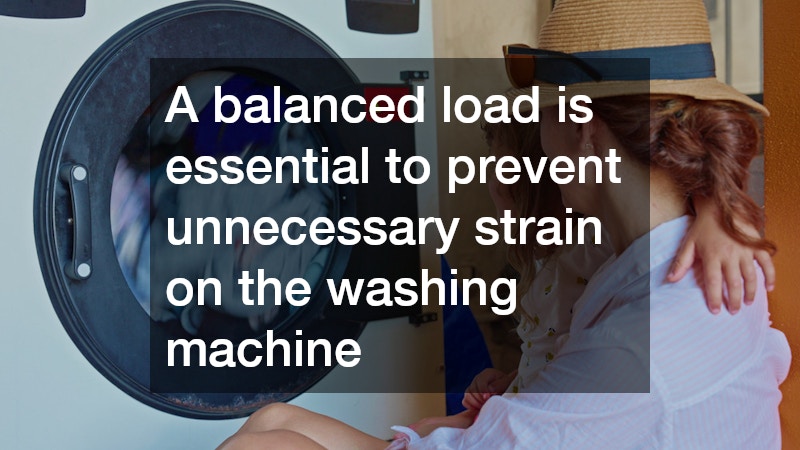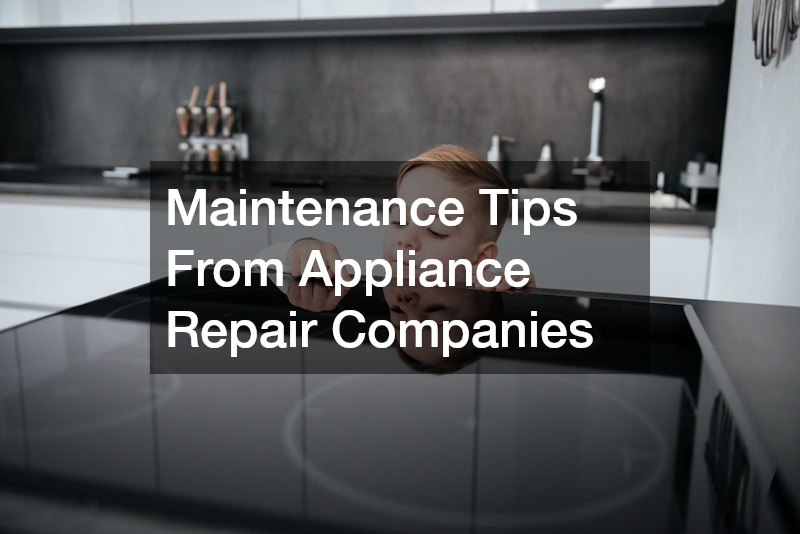Appliances are the backbone of convenience in our daily lives, yet they often go unnoticed until they malfunction. These essential tools help us manage daily chores with ease, be it cooling our food, washing our clothes, or cooking our meals. However, like all machines, appliances require regular care and attention to continue functioning efficiently. Discovering effective maintenance tips from professional appliance repair companies can help users prolong the life of their home appliances and ensure they function smoothly.
General Maintenance Tips for Common Household Appliances
Routine Cleaning and Care
Routine cleaning and care are crucial for keeping household appliances running smoothly. Accumulated dirt and grime can cause appliances to overwork and eventually break down.
Regular cleaning prevents such buildup and extends the lifespan of your devices. For example, regularly wiping down refrigerator shelves can prevent odors and maintain a hygienic environment. Periodically inspecting and cleaning appliances like the oven and microwave can avoid potential fire hazards and improve efficiency.
Proper Usage Guidelines
Following proper usage guidelines is just as important as cleaning. Appliances are designed with specific capacities and functions, and overloading them can lead to damage. For instance, overloading a washing machine can not only damage the drum but also affect cleaning efficiency. Always refer to the manufacturer’s manual for optimal use instructions. By adhering to these guidelines, you can prevent avoidable repairs and extend the life of your appliances.
Extending the Life of Your Refrigerator
Regulating Temperature and Humidity
Managing a refrigerator’s internal temperature and humidity is vital in preserving food and maintaining the appliance’s health. Fridge temperatures should generally be set between 37 and 40 degrees Fahrenheit to ensure efficiency. Proper humidity control also prevents mold growth, especially in moist environments. Incorporating the use of an appliance thermometer can help in accurately measuring and setting the desired temperature. Regularly check these settings to avoid overworking the refrigerator.
Cleaning the Coils and Seals
Condenser coils, often located at the back or bottom of the refrigerator, are critical for efficient operation. Dust and debris buildup on these coils make the refrigerator work harder to cool, thereby consuming more energy and raising utility costs. It’s advisable to clean these coils every six months. In addition, the door seals must be checked regularly to ensure they are not cracked or peeling, which can lead to cool air escaping. Proper maintenance of these components can significantly boost energy efficiency and prolong the refrigerator’s lifespan.
Maintaining Your Washing Machine
Preventing Mold and Mildew
Mold and mildew can form in washing machines when moisture is trapped for extended periods. To prevent this, always leave the washing machine door open after use to allow air circulation. Cleaning the rubber gasket and detergent drawer regularly will also help in reducing the chances of mold growth. Using appropriate cleaning agents specifically designed for washing machines ensures thorough cleaning. These small practices contribute significantly to keeping odors at bay and improving the overall hygiene of the machine.
Ensuring a Balanced Load
A balanced load is essential to prevent unnecessary strain on the washing machine’s drum. Uneven loads can cause the drum to become unbalanced during the spin cycle, leading to loud noises and potentially damaging the machine. Distributing clothes evenly inside the drum before starting a wash cycle can help maintain balance. It’s also important to avoid cramming too many clothes into one load, as it can damage both the clothes and the machine. By maintaining a balanced load, you ensure the longevity and effectiveness of your washing machine.
Keeping Your Oven in Optimal Condition
Regular Self-Cleaning
Most modern ovens come equipped with a self-cleaning feature, which can be a convenient way to remove baked-on residue. It’s recommended to use this feature periodically, depending on the frequency of your oven use. The self-cleaning mode usually involves heating the oven to extremely high temperatures, incinerating food residue into ash, which can then be wiped away. However, make sure to follow the manufacturer’s instructions closely to avoid overheating or damaging oven parts. Regular self-cleaning not only keeps the oven spotless but also ensures it functions at its best.
Inspecting and Replacing Seals
The seals around an oven door play an essential role in maintaining temperature and cooking efficiency. Wear and tear can cause these seals to lose their effectiveness, leading to heat loss and uneven cooking. Inspecting the seals periodically for cracks or tears and replacing them when necessary maintains optimal cooking performance. It’s a small investment that can significantly influence energy efficiency and cooking results. Keeping seals in top condition helps ensure your oven operates efficiently and lasts longer.
Consistency in appliance maintenance can save homeowners significant time and money. By following expert tips from appliance repair companies, individuals can ensure their appliances remain in top-notch condition, thus extending their lifespan and performance. Implementing these insightful maintenance strategies allows homeowners to enjoy the seamless operation of their devices. Moreover, addressing minor issues promptly can prevent them from growing into major, costlier problems. Overall, the careful attention paid to routine maintenance will ensure your appliances continue to serve your household effectively for many years.

